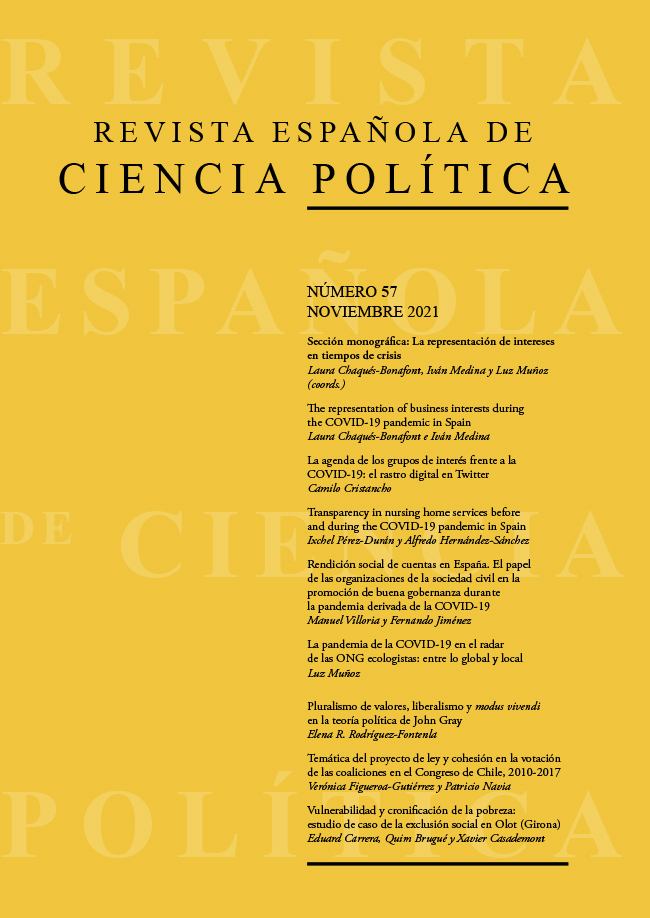Value pluralism, liberalism and modus vivendi in the political theory of John Gray
DOI:
https://doi.org/10.21308/recp.57.06Keywords:
John Gray, value pluralism, modus vivendi, liberalism, communitarianism, multiculturalism, realism, contemporary political theoryAbstract
The aim of this article is to analyze pluralism that runs transversally through John Gray’s political thought, a British theorist whose work occupies a relevant position in the field of contemporary political theory. To this end, the more intellectual and non-ideological side of his thought is here examined; in other words, his works focused on political theorizing. Firstly, it is analyzed how Gray defines value pluralism on the basis of three interrelated ideas: plurality, incommensurability and impossibility of rational resolution of value conflicts. Even if Gray adopts a radical notion of incommensurability, he also attributes certain limits to it; what is of great importance to understand his whole political theory. Secondly, it is examined the connection between value pluralism and Gray’s political proposal. On the one hand, the article focuses on his «negative» criticism of liberalism and communitarianism, as well as his more or less explicit defense of multiculturalism. On the other hand, the article examines Gray’s «positive» political theory, as it is reflected in his proposal of modus vivendi, which displays some sort of ambiguity as a consequence of his double understanding of value pluralism both as descriptive and normative. Finally, it is argued that this ambiguity is explained, too, by Gray’s balanced view of politics, for whom considerations of legitimacy and normativity are not overridden altogether by the indeterminate, contextual and contingent political processes involved in establishing a modus vivendi. Ultimately, this contributes to shape Gray’s sui generis political theory.
Downloads
Published
How to Cite
Issue
Section
License
Copyright (c) 2021 Elena R. Rodríguez-Fontenla

This work is licensed under a Creative Commons Attribution-NonCommercial-NoDerivatives 4.0 International License.






